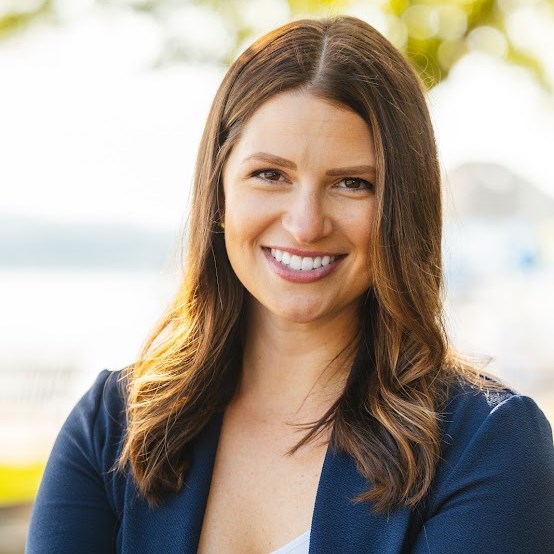If you bought a house before COVID, or early in the pandemic, and locked in a low interest rate then you’re probably sitting on a gold mine. Prices are up, interest rates are up, and rents are up. This results in: profit margin.
Look online, or ask your go-to Realtor, the market rent you could charge for your current property. In most cases (for properties that were purchased before the recent rise in home prices and interest rates), the potential rental income will likely exceed the current carrying costs resulting in a positive monthly cash flow.
If you have a fixed-rate mortgage, the news gets even better. Based on historical data, rents reliably and consistently increase over time. If you have a fixed-rate mortgage, then your mortgage payment never changes. This means that not only will you start with a positive monthly cash flow, but your profit will continue to grow overtime as rents go up and your mortgage payment stays the same.
Some people hear this and they get excited about having an opportunity to build wealth and add a passive income stream to their finances. Others, however, have a lot of objections. I’m going to address some of these below:
“I don’t want to be a landlord.”
This is a perfectly acceptable stance, but I do think giving more thought to what exactly being a landlord entails is prudent. Depending on your profit margin, you may be able to hire a property manager, and still make money. If you have an annual tenant, in my experience, this does not require enough work to justify hiring a property manager. They call it “passive income” for a reason: there’s not much to do unless something in the house breaks. Then, having a local handyman (and plumber, HVAC person, etc.) comes in handy. If you end up scaling your operation and adding multiple properties then that is when a property manager may be of more value.
“What about all of the costs other than my mortgage?”
The great thing about a fixed rate mortgage, is that the payment is fixed so it never fluctuates and you can always budget around that. However, your property taxes and homeowner’s insurance costs can always change. (These can go up or down depending on market conditions). You should include your current property taxes, homeowner’s insurance cost, and condo/association dues in your “carrying costs” when calculating your profit margin.
And then, of course, you have general upkeep and repairs. The great thing about profit margin is that it creates a cushion in your budget to help cover unforeseen costs.
“Shouldn’t I get out while prices are high?”
I have a few different thoughts on this objection. The primary one has to do with your overall goal for the property. If your goal is to have an additional passive income stream, now and during retirement, then as long as the property creates a positive cash flow then selling it really doesn’t come into the picture, regardless of home prices.
You also want to consider diversification. It’s important to have a diverse mix of assets and investments to create wealth and mitigate risk. If you already own a cash-flowing property, then keeping it is a great way to diversify your investments (versus keeping all of your money invested in the market, for example).
Lastly, we are currently navigating a major housing inventory shortage. As long as that exists, it’s going to protect most home values from going down.
“I need to sell my house so that I have a down payment for a new house.”
False. If you have equity in your property then there are ways you can access your equity without selling your home. The most common vehicles for this would be a cash-out refinance or a Home Equity Line of Credit (HELOC). These are great tools to leverage your existing property(s) to create the cash flow you need to make additional investments, including buying a new home.
“I want to keep my primary housing payment as low as possible by making a large down payment.”
My advice here is just to do the math. For example, what if putting a larger down payment makes your monthly payment on your new home, let’s say $500/month less, but if you rented your property out then you would make, let’s say $1000/month in profit? In this scenario, one option makes you $500/month more than the other. And, this analysis doesn’t even account for the additional benefit of having an appreciating asset that is being paid for by someone else.
It’s really important not to get tunnel vision on one thing, like having the lowest monthly payment as possible on your new home. In order to make informed financial decisions, we need to look at the big picture.
With that being said, this is advice for people who are interested in making property part of their wealth building process and retirement plan. That, however, is not everyone’s goal so there’s never going to be a universal “right way” to do things. Think about what your big picture financial goal is, and then try to consider all aspects of that plan without getting tunnel vision on just one piece.
“Won’t keeping my current home restrict my qualification for my new home?”
Not necessarily! For someone who is looking to qualify for a new home purchase, while holding on to an existing property, there are typically two main considerations:
(1) Where will your down payment for the new house come from?
As mentioned above, you can potentially use equity in your current property to make a down payment, or you could just make a smaller down payment with other funds that you currently have available. A trusted mortgage advisor can let you know what the down payment requirements are for your desired price range so you can make a game plan.
(2) Can you qualify for two mortgage payments at once?
If you do not qualify for your new mortgage payment because of your existing mortgage payment, then many loan programs will allow you to rent your “departure residence” out. This means if you are planning to convert your current primary residence into a rental property when you move out, then you can potentially use that future rental income to qualify for your new home purchase.
Also, most loan programs allow you to pay off other debt (like credit cards, car loans, student loans, etc.) in order to qualify as well. You could potentially even use a HELOC to do that.
Always keep in mind that housing finance options are specific to your unique situation so you’ll always want to have a team that you can rely on to help make informed decisions. I recommend keeping a relationship with a trusted Mortgage Advisor, Realtor, and CPA so they can help with making these decisions. Please feel free to reach out if you’d like referrals for any of these.
Subscribe below to follow along to get all of your questions answered and to get excited about building wealth with property.





